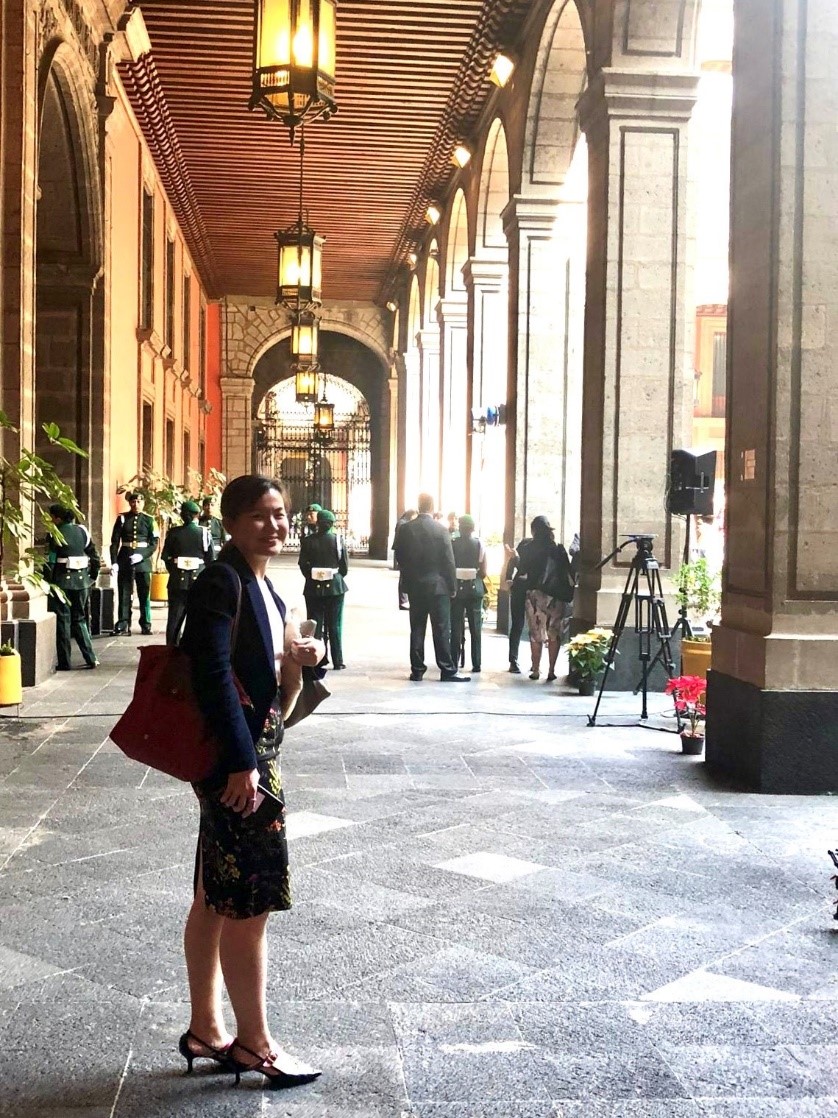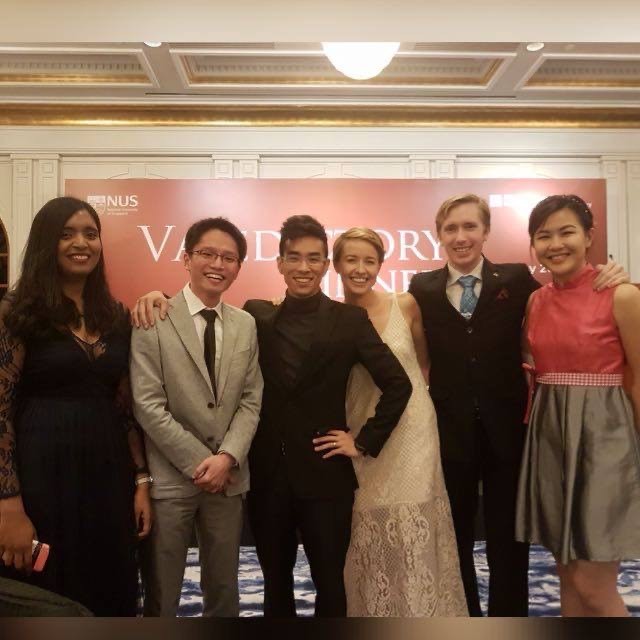Master in Public Policy (MPP) graduate Athena Foo is a Senior Assistant Director with Singapore’s Ministry of Trade and Industry, known locally as MTI. She is part of its Emerging Markets Division, which is responsible for deepening bilateral economic relations with over 130 countries.
As a theatre undergraduate, entering the MPP programme was a crossover of sorts for Athena, where she had to contend with unfamiliar subjects such as economics and quantitative research for the first time. During her MPP stint, she also spent four months in Kazakhstan as an exchange student, which turned out to be a crash course in forging cross-cultural bonds.
Find out how Athena’s MPP experiences have helped her to thrive in her current job.
Tell us about your work. How has Covid-19 affected you?
[ALUMNI-INFO TEXT="My team and I get to shape Singapore’s economic relations with countries in Central Asia and Latin America. My job gives me the opportunity to learn about places that the average Singaporean may not even know about.
Growing Singapore’s economic relations with emerging markets is not something that will always bring about tangible results immediately. Our work may only bear fruit years later, if at all. But it needs to be done because there is always a possibility that Singapore could benefit from these relations — especially when these markets become more economically significant.
Naturally, travelling is an important conduit for the work that we do. This includes official visits to foster ties, negotiating trade agreements, and participating in international platforms, such as the World Trade Organisation (WTO) and the Asia-Pacific Economic Cooperation (APEC), to contribute to multilateral trade discussions. The suspension of international travels has probably been the most tangible challenge for us during Covid-19, and we’ve had to rely heavily on telecommunication and video conferences to maintain momentum in our work.
With the disruption of global supply chains due to Covid-19, our ongoing efforts to diversify our food sources have taken on a much greater significance. These efforts will continue even when the pandemic eases and international trade flows gradually resume."][/ALUMNI-INFO]

Part of the Singapore delegation for Prime Minister Lee Hsien Loong’s official visit to Mexico in November 2019, at the National Palace in Mexico.
Did your MPP experience prepare you for this role?
[ALUMNI-QUOTES TEXT="The MPP programme involved an exchange to Kazakhstan, which was pivotal in more ways than I expected.
Being in a completely foreign environment, where almost no one spoke English, and dealing with cultural differences on a daily basis taught me to troubleshoot unexpected problems. For instance, if my phone battery went flat because of the extreme cold weather, I would have to pop into random shops or cafes to ask to charge my phone. I fully appreciated what I had gained when I had to work with foreign counterparts who are not comfortable speaking in English, under tight timelines and unforgiving time differences.
While I was in Kazakhstan, I started learning Russian because I wanted to interact with the locals in their working language, and I’ve been keeping up with my language studies for more than two years. Knowing conversational Russian is a bonus at work when it comes to building rapport with Russian-speaking counterparts, or when my colleagues need help with simple translations.
It was also during my exchange where I found out about the MTI position. Kazakhstan was hosting the World Expo while I was there, and at the event, I caught up with a Singapore acquaintance—an MTI officer—who spoke briefly about his work. When I returned to Singapore, I was looking for a job that would allow me to stay in touch with the Central Asian region, preferably within the civil service. After chatting with the LKY School’s then-executive director of Alumni Relations and Executive Education, I realised that the MTI officer’s role might be a good fit for me. I got in touch with him again, and thankfully the team was looking to hire! My time in Kazakhstan really helped me to stand out as an applicant."][/ALUMNI-QUOTES]
When we spoke to you two years ago, you said this: “On the whole, the MPP programme surprised me, because we tend to look to certain countries for examples of good policy. But in my classes, I learned about effective policy implementation in places that are often overlooked. Every country offers its own lessons.” Has this perspective been useful in your current work?
Definitely, since I cover emerging countries. While I have a much greater understanding and passion for Central Asia because of my exchange and my interest in the Russian language, my work also requires me to develop a similar perspective for Latin America, a region I was not as familiar with prior to this job. Latin America is much more diverse as a region, and there are bright spots worth paying attention to. For instance, Chile has an internationally recognised government programme called Start-Up Chile, and many start-ups all over the world want to be part of this programme.
Beyond trade and economics, I also try to read up on how some Latin American countries address their domestic issues, and, with the ongoing Covid-19 pandemic, how cities like Colombia’s Medellin have managed to curb the spread of the disease. Such insights are usually useful in revealing nuances in a country’s economic direction as well.
You majored in Theatre Studies as an undergraduate. How did you adapt to the demands of the MPP programme?
For someone without an economics background, and who hadn’t touched “extreme Math” for over seven years at the point of starting the MPP programme, getting through the mandatory economics and quantitative research modules in the first semester was probably my biggest challenge. It was exceptionally tough as I wanted to qualify for the exchange programme—for that, I needed a Cumulative Average Point of at least 4.0 (B+ and above) in the first semester. You can imagine how hard I had to work for those two modules, and it remains one of my proudest academic achievements!
In my final MPP semester, I decided to take the Cost Benefit Analysis elective module, which had a significant quantitative analysis component. I think an important mindset for public policy students is the willingness to learn something that is useful for professional advancement, even if one is not naturally inclined towards it. The elective modules offered by the LKY School cover a wide range of subjects, from philosophy to data analytics, and I would encourage MPP students to take advantage of that.

Athena (first from the right) at her MPP Valedictory Dinner
What’s your advice for LKY School alumni hoping to work in your field?
Only Singaporeans are eligible for internship and employment opportunities at the MTI.
Economic diplomacy, trade defence negotiations, and pro-enterprise development are just some of the different types of work that we do at the MTI, and each area demands a different skill set. Do research and identify which divisions you are interested in. Try and intern with us first, so you are better informed on whether the MTI will be a good fit for you.
Writing well is also a core skill for my work, as we’re required to draft meeting briefs, meeting notes, talking points, and speeches. If you want to work in the MTI, you’ll have to be prepared to do lots of writing, and under tight deadlines!